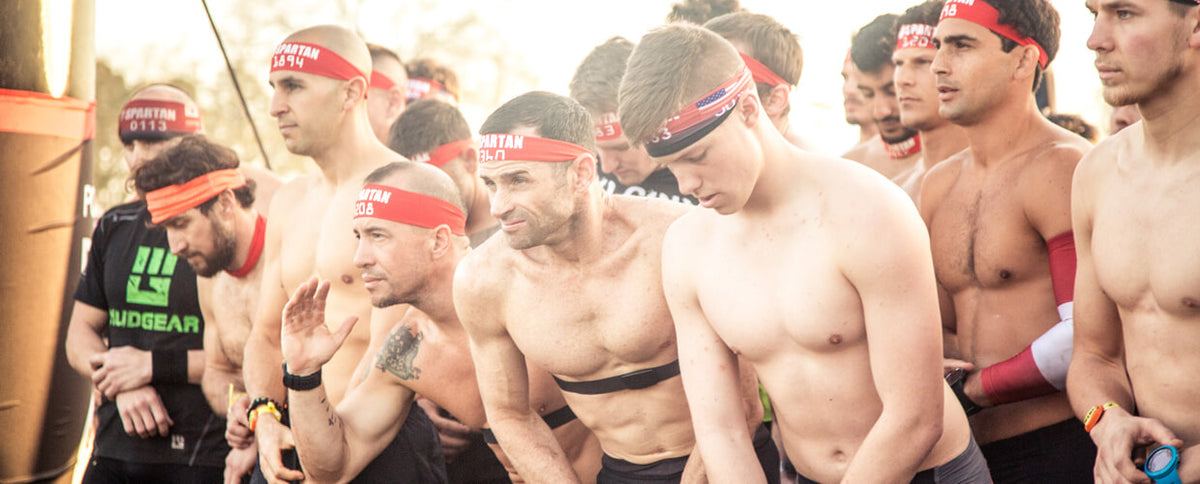Pre-Race Anxiety: 5 Ways to Calm Starting-Line Nerves

Standing at the starting line of a race can feel equal parts exciting and downright terrifying. Whether it’s your first time on the course or your 15th, it’s easy to start doubting your readiness or questioning your ability to make it to the finish. But don’t let negativity get the best of you. To keep calm and crush every step, we asked sports psychologists to weigh in on how they help athletes handle pre race anxiety. Follow their tips for a better start—and maybe even a record finish.
5 Tips to Tackle Pre Race Anxiety
1. Figure out what you’re feeling.
“The first step [in addressing anxiety] is self-awareness—focus in on what your thoughts are and what emotions you’re feeling to determine what’s really going on and what the source is,” says Trent Petrie, Ph.D., director of the University of North Texas’ Center for Sport Psychology. As soon as you determine the source of your stress, you can better identify the steps for squashing it.
2. Just breathe.
It sounds super simple, but it’s also super effective. “Breathing connects the mind and body, so it’s very critical,” says Bonnie Marks, Psy.D., senior psychologist at NYU Langone Health. “We have a tendency to keep our breath short and from the chest, but you want to breathe deep from the abdomen.”
To do that, place your hands on the stomach and count to four as you inhale, hold for four, then exhale for another four-count. You should feel your hands expand and release as you do this. Marks suggests practicing deep breathing even before race day, so it comes more naturally. “The idea is to create a relaxation response, so you reduce anxiety and avoid a fight or flight reaction,” says Marks. You don’t want your body in survival mode even before you step over the start.
Walking away from the crowd to take some deep breaths before the countdown begins is also a good idea, says Petrie. “Close your eyes. Take three, five, seven deep breaths. Bring yourself back into the present moment of your body,” he says. “That’s also when you can tell yourself, ‘I’ve trained for this. I’ve worked hard. I’m ready to go. And I’m going to have fun today.’ Those statements can bring you back and remind you of what’s in your control.”
3. Think about your training.
You’re not alone if performance anxiety makes you question if you put in the right amount of time and training before you kick off the competition. It’s a common cause of concern. But consider your dedication to following your plan. If you put in the work, you don’t need to worry about how the race will go—you already achieved the hardest part. “Reflect on the training you’ve done, the effort and focus, and that can help you believe in yourself a bit more,” says Petrie. “Trust what you’ve done to prepare yourself.”
Keeping a training log during the months leading up to a race can help with pre race anxiety, says Petrie. It gives you a concrete look back on your increase in mileage, faster split times, or strength gains—and that’s always a nice little boost to keep going.
Related: 5 Signs You're Overtraining (and 5 Antidotes)

4. Prepare some words of encouragement.
Stop negative self-talk by going to the starting line with a few mental pick-me-ups and positive mantras already in your pocket. When you feel yourself getting worried, repeat those practiced words to yourself. “It can be as easy as ‘I can do this’ or ‘I have trained for this,’” says Marks. The more you repeat your power words before race day, the more naturally they’ll pop in your head when it comes time for some positivity.
“If an athlete has a period of the race where they know they struggle and their typical dialog is, ‘Oh man, I’m struggling, I don’t know if I can keep going, maybe I should stop,’ they should practice shifting that internal dialog,” says Petrie. A better mental convo: ‘Hey, I’m struggling, but that just means I’m working really hard. I know I can keep going because I’ve done this before. Let’s go!’
Meditation can also help you form a solid mantra and deal with pre race anxiety ahead of time. “Having that quiet time is really good because you start to learn more about yourself and your thought processes,” says Marks, who suggests the app Insight Timer — a meditation and sleep tracking tool with a large library of guided tracks — as a strong place to start a practice. “You get to know your vulnerabilities and how to handle them.”
5. Visualize a strong race.
Picture yourself moving through every step of the race, from start to finish. “It’s all about creating mental representations of what it is you’re going to be doing,” Petrie says. “Imagine different parts of the race successfully.” As you feel your pre race anxiety, identify your pain points and pivot to the positive. Know you struggle with push-ups or burpees? Imagine yourself knocking them out with speed and ease. Realize you get tired around mile four? Picture yourself pushing through, running strong and light on your feet.
“Images can be powerful reminders of readiness and help you feel more confident in yourself,” Petrie says. “And a confident athlete isn’t usually going to be an anxious athlete.”



